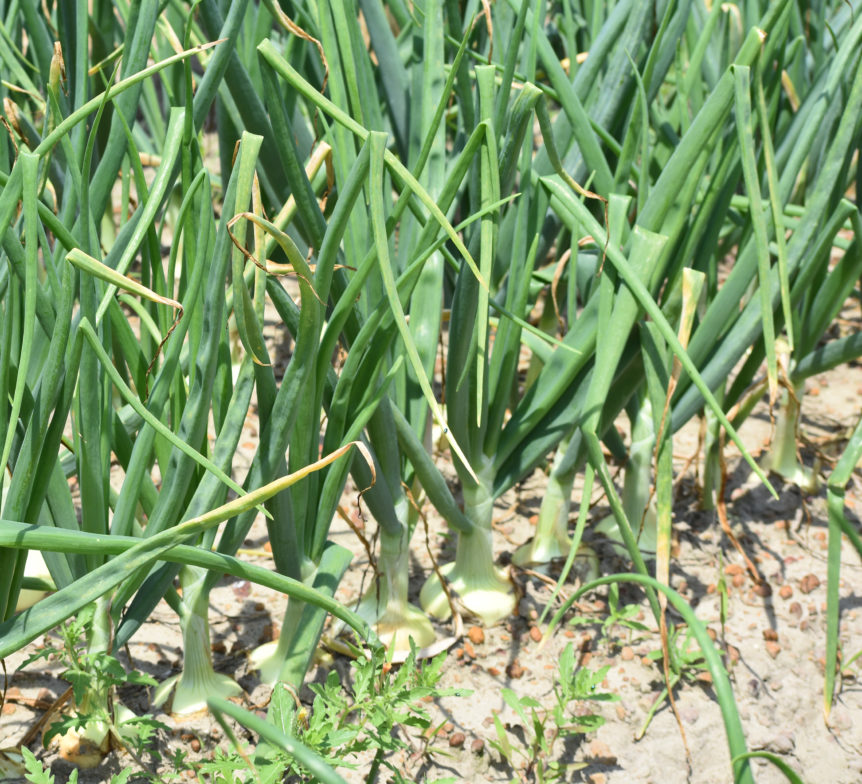
By Clint Thompson
Onion producers should be aware that the Environmental Protection Agency (EPA) has issued an emergency order suspending all uses of Dacthal. The order became effective on Aug. 7 and the herbicide can not be sold or used in any manner, according to Stanley Culpepper, University of Georgia Extension weed scientist.
“Even it’s sitting in your barn, you cannot use it legally,” Culpepper said.
Adverse Health Effects
Exposure to Dacthal, also known as dimethyl tetrachloroterephthalate (DCPA), can cause thyroid level changes in unborn babies in pregnant women, according to an EPA press release. These changes are linked to low birth weight and impaired brain development.
The impact on specialty crop production in the Southeast is mostly felt among onion producers, who used Dacthal to control weeds.
“It’s primarily used in onion seedbed production, so it’s not a lot of volume. It’s not a lot of acres, but it is important because it’s the only residual herbicide we had in the seedbeds,” Culpepper said.
“We’re going to have potential less weed control in our seedbeds and have to rely on a more effective fumigant system.”
The pesticide was registered to control weeds in both agricultural and non-agricultural settings but was used primarily on vegetables like broccoli, Brussel sprouts, cabbage and onions. Culpepper said growers use Treflan 4L herbicide, a better option for those other crops. However, it can’t be applied on seeded onion, because it will kill it.
“DCPA is so dangerous that it needs to be removed from the market immediately,” said Assistant Administrator for the Office of Chemical Safety and Pollution Prevention Michal Freedhoff. “It’s EPA’s job to protect people from exposure to dangerous chemicals. In this case, pregnant women who may never even know they were exposed could give birth to babies that experience irreversible lifelong health problems. That’s why for the first time in almost 40 years, EPA is using its emergency suspension authority to stop the use of a pesticide.”










